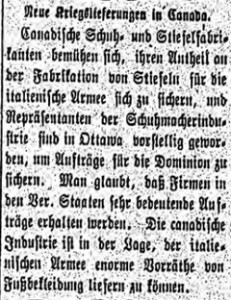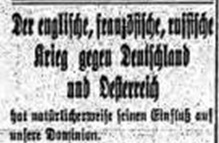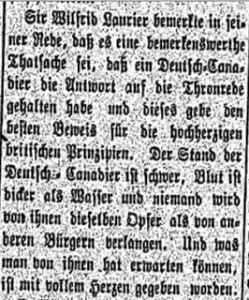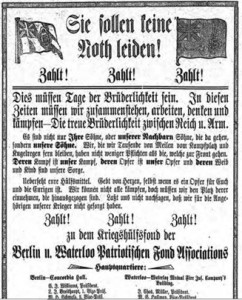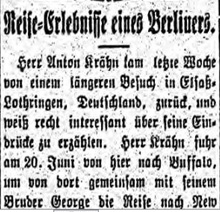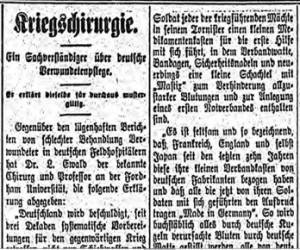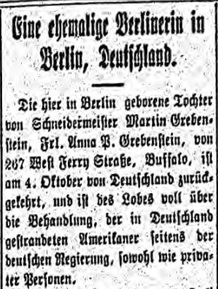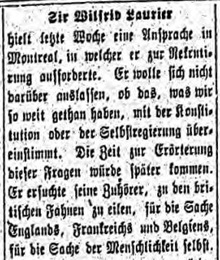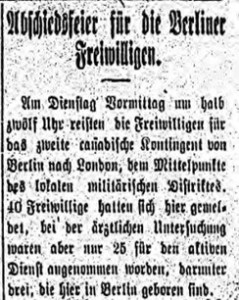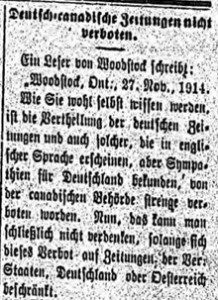As a manufacturing town, Berlin’s economy was expanded because of the war. Immediately after the war began, factories in Waterloo and Berlin received contracts worth $150,000 to produce goods and clothes for the Canadian soldiers.
Canadian boot suppliers even hoped to gain a portion of the orders to manufacture boots for the Italian army, but the reporter believed that these types of foreign contracts would more likely be given to enterprises in the United States .
(„150000$ in Kriegslieferungen für Berliner und Waterlooer Fabriken“, Berliner Journal, 19 August 1914; „Neue Kriegslieferungen in Canada“, Berliner Journal, 9 June 1915)
